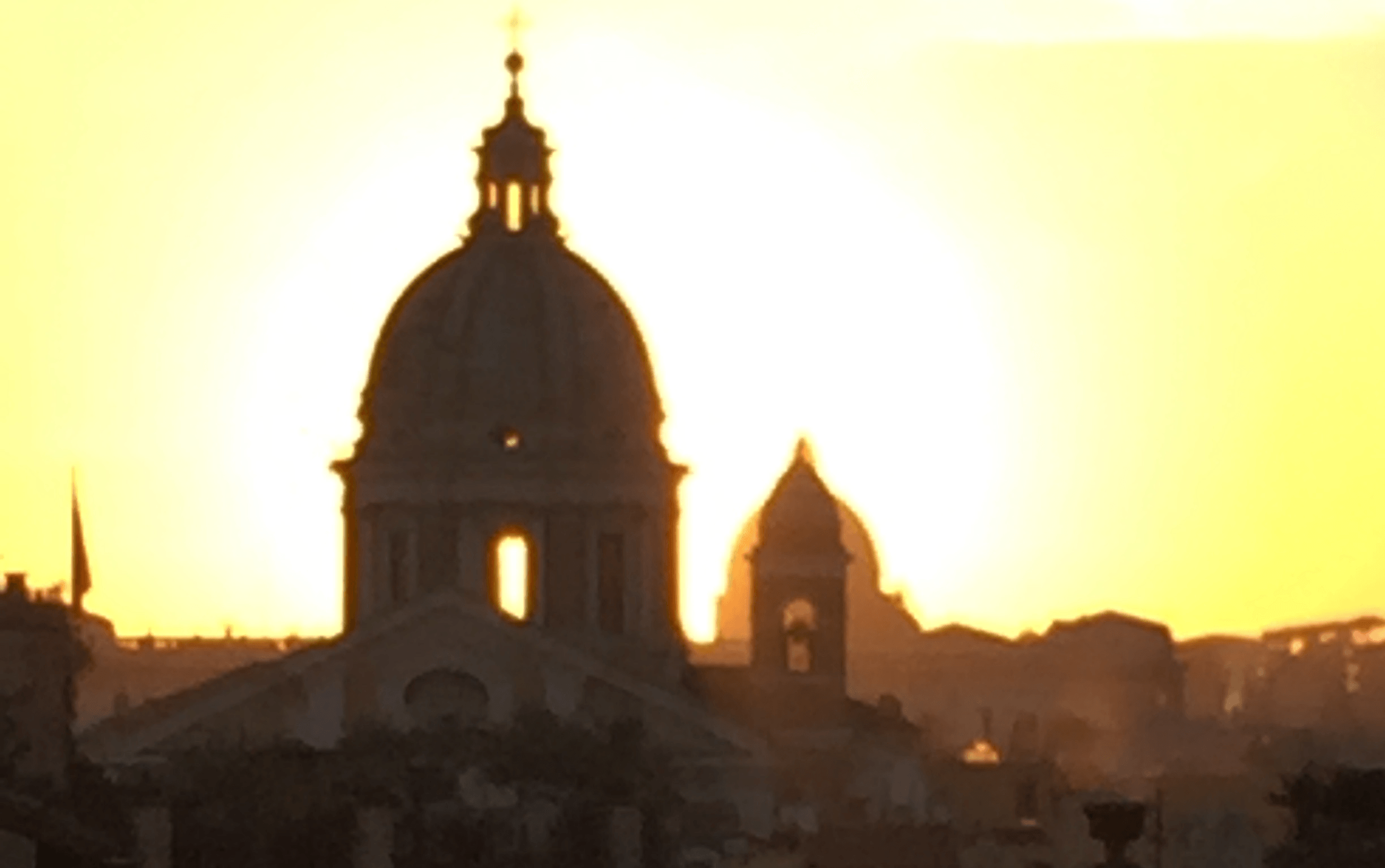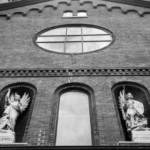Laurie and I walked the Roman Colosseum and tried to imagine gladiators, surprise trap-doors with tigers, cheering crowds, and mock naval battles. But I also remembered, “…let him that thinketh he standeth take heed lest he fall” (1 Cor 10:12, KJV). And I thought of General Patton’s famous words
“For over a thousand years Roman conquerors returning from the wars enjoyed the honor of triumph, a tumultuous parade. In the procession came trumpeteers, musicians and strange animals from conquered territories, together with carts laden with treasure and captured armaments. The conquerors rode in a triumphal chariot, the dazed prisoners walking in chains before him. Sometimes his children robed in white stood with him in the chariot or rode the trace horses. A slave stood behind the conqueror holding a golden crown and whispering in his ear a warning: that all glory is fleeting.”
Last month Laurie and I arrived in London and took a fast tour of the city – Big Ben, House of Parliament, Westminster, etc. We took a day tour up to Oxford (Lewis, Tolkien, Harry Potter, Protestant martyrs Hugh Latimer, Nicholas Ridley, Thomas Cranmer burned at the stake by Bloody Mary), the Cotswolds (Downton Abbey, Father Brown), Stratford on Avon (Shakespeare), Warwick Castle (the original Ren Fest complete with catapult and falconry). In London we ate fish ‘n chips, drank pub ale, rode the Tube, and caught a play called Labour of Love, a British political humor piece that we hardly understood.
But then standing in front of Buckingham Palace it hit me: the British Empire was done 100 years ago. In 1897 Queen Victoria held an event that not even the Roman Empire could conceive: The Diamond Jubilee, the Queen’s 75th anniversary of ruling as queen. This was the peak of the British Empire. The entire world showed up – all world leaders came to show their deference to the Queen and her mighty Empire. But the British Empire was geographically over-extended, and it was very expensive to run the world. Two years later, 1899, the British embarked on the 2nd Boer War all the way down in South Africa (with a young Winston Churchill acting as news correspondent and unlikely hero), and the British only won the war because they acted so brutally – killing Boer women and children. The War signaled the end of the British Empire but no one knew it at the time. World War 1 bankrupted Britain and in the 1920’s they sold much of their naval fleet (at fire-sale prices) to a struggling, broke, humiliated Germany, which came back to haunt them with it in WW2. All glory is fleeting. Fallen Empire #1: The British Empire fell 100 years ago.
Then Laurie and I flew to Italy and spent four nights with my brother who owns a villa in Tuscany. It’s a rough life for him, eating gelato, drinking fine wine and espresso, tending his olive trees – but someone has to do it. And Laurie and I were more than happy to help. We traveled all over beautiful Tuscany. We visited a 16th century castle – dozens dot the land,16th century vineyards, which are still vibrantly making Chianti. We went to Assisi, and Laurie and I walked down below the altar in St Francis’ basilica and touched Francis’ tomb and I prayed for the peace of the world, pondering the gentle spirit of Francis who saved the soul of the Catholic church around the 13th century.
We left my brother’s place and traveled down the road to Florence and saw all the famous stuff, such as Michelangelo’s David sculpture – 15 foot tall and magnificent. The Renaissance is called the Age of Man, and David is the epitome of the Renaissance’s Age of Man. In the 1500s Italy was filthy rich because they invented banking, and the powerful Vatican sucked in gold from all over Europe. They spent their money on art and churches. But then came the Protestant Reformation, the printing press, and republics – and the Vatican and Medici banking family lost their power and money. The Age of Man was also the age of the individual beginning to feel like they were their own person. Power and hierarchy were being challenged. People could read the Bible for themselves. They challenged authority. By 1800 Europe had forever changed. The American experiment was well underway and hadn’t imploded (unlike the failed French Revolution). The British Empire was on the rise partly because they had figured out how to have both a monarch and a republic. But the powerful banking families of Florence, Venice, Sienna, Milan… were long gone. All that was left were palaces, castles, and vineyards. Fallen Empire #2: The Catholic Empire (banking, authority, hierarchy) fell 300 years ago.
We left Florence and took the high speed train down to Rome. We saw all the famous stuff: Colosseum, The Forum, Pantheon, and such. But the Roman Empire of the West lost its last Latin Emperor in 476AD. (The Roman Empire continued in the East, in Constantinople until about 1470AD). All that’s left in Rome are some stone foundations. You need a lot of imagination to envision the once splendid Roman Empire. The grass grows where once Caesars declared themselves gods. Fallen Empire #3: The Roman Empire, 1500 years ago.
If you’re like me, then you know what my thought was as I looked at toppled stones, vague outlines of huge edifices, long abandoned castles, monuments to famous generals: What about America? None of these fallen Empires knew they were falling until it was too late. All glory is fleeting. “…let him that thinketh he standeth take heed lest he fall.” “Make America Great Again” – “again” is telling isn’t it? I do not think America is done or teetering on the brink of disaster. We are too rich! We are too powerful. We have no real crisis – no plague, no army invading, no despot junta slaughtering our citizenry, no food lines – unemployment is 4.1 percent. Everyone has an opinion these days about what’s wrong with America. I prefer the opinions of those outside America. They seem more honest.
Here’s an outside opinion… America has a lot going for it. What is so great about America? Well, we have freedom. So much freedom. Tons of freedom. British author Os Guinness points out that freedom has it’s own internal contradiction: freedom ultimately destroys freedom because if each individual exercises their own personal freedom to the extreme then society breaks down. Where’s the necessary democratic responsibility that goes hand-in-hand with freedom? It is not time to board the lifeboats. But I do think there is much to pay heed to, warning signs if you wish. It is time for thoughtfulness – not rants. I suggest we stop listening to the politicians and news media and do some real citizen homework and analysis – see below.
I think when America does someday fall – and it inevitably will – it will come from within. Fareed Zacharia said the British Empire was good at politics and terrible at economics (they went broke). He said America on the other hand is good at economics and terrible at politics (we can’t figure out or agree on what’s important). As was once said, “If you wish to destroy your enemy, then give them everything.” Maybe affluence makes a people confused. Affluence sure didn’t help Florence in the 16th century!
What’s important? Forget the superficial categories of liberal and conservative. Focus on categories of character and virtue and where it comes from. Refuse to categorize morals as either liberal or conservative. Instead what character and virtue is held by everyone in America? Who are we? What kind of people are we? (Ref. Os Guinness) Focus on what we agree upon. This is what keeps us a vibrant healthy people. When Empires exercised responsible restraint, they flourished. When they became indulgent, they failed. This is why Jesus is important from my pastoral perspective. What does Jesus value? What is Christ’s character? Why did he go to the cross? What was Jesus’ vision for humanity? I suggest this is a good baseline for America. Atheists Franklin, Jefferson, Voltaire and de Tocqueville thought so. This is what will last. All else is fleeting. Empire #4: America the Beautiful.









